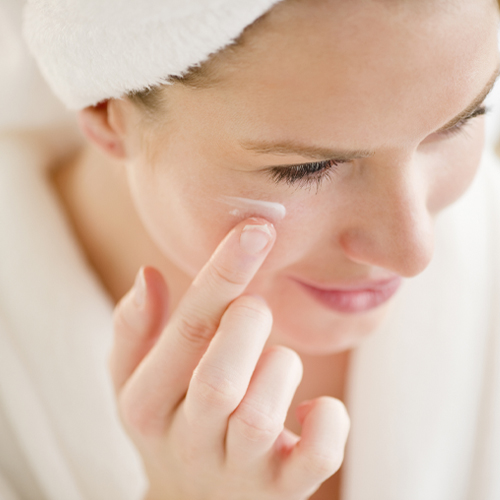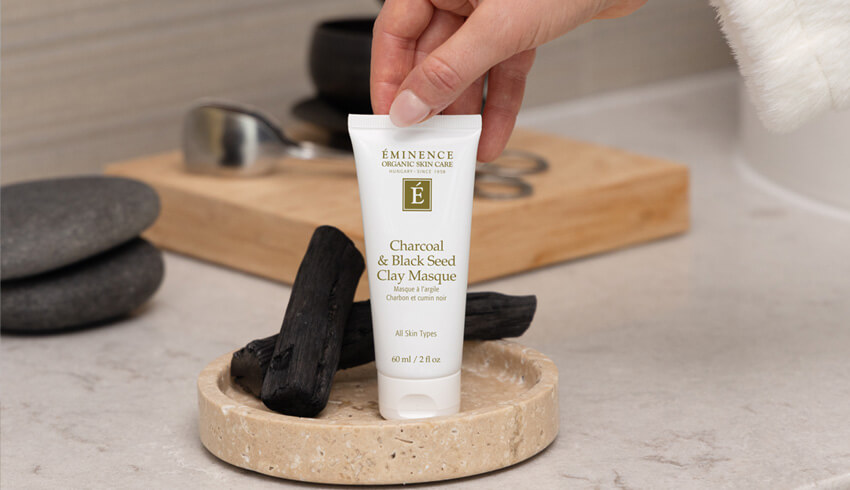
How often should you moisturize your face? And how much is the “right” amount? If you have oily skin, should you moisturize as often as dry skin type? Whether you go through a tub of moisturizer a week or rarely use any at all, you might have these questions pop up when building your skin care routine.
That’s why we’ve turned to Dr. Hooman Khorasani to unpack your moisturizer concerns. Dr. Khorasani is a triple board-certified, fellowship-trained cosmetic and skin cancer surgeon. After peppering Dr. Khorasani with queries, here’s what he had to say in our Q&A about the most commonly asked moisturizer questions.

What Does Moisturizer Do to the Skin?
Answer: We typically use the word moisturizing to indicate the application of any kind of topical agent to the layers of skin which enhance hydration.
Ceramides and other lipids are the main components of our skin barrier function. Sebocytes in our sebaceous glands help produce these lipids needed for optimal barrier function by protecting your skin from moisture loss. Even people who have oily skin need hydration, as the oily skin is typically a result of a negative feedback loop. For example, the less hydration your skin gets, more signals are sent to sebaceous glands to produce more oil.
Does Moisturizer Benefit All Skin Types?
Answer: Generally speaking, yes. Moisturizing your skin will avoid dryness, flakiness, redness and itching. Different body parts typically have different requirements when it comes to moisturizing. This is purely a function of sebaceous gland density in the skin. Typically, the sebaceous areas of the face need less moisturization than the rest of the face.
The sebaceous areas include the forehead, nose, medial cheek, and around the mouth commonly referred to as the “T- zone” of the face. Most of us have less sebaceous glands on the trunk and lower extremities and therefore, will need more frequent moisturization on those areas.
Some skin types will have more baseline oil production and therefore, will have less moisturization needs than other skin types. Sebaceous production is controlled by sex hormones and can fluctuate with hormonal cycles. This is more commonly evident in females but can also be seen in males.
In certain people with eczema, there is a baseline loss in lipid biosynthesis and therefore, loss of barrier function. These individuals are more prone to skin infections. Therefore, patients with eczema have more moisturizing requirements than the average population. For these patients, it’s equally important to prevent moisture loss, as much as adding hydration. Taking short showers with lukewarm water and adding humidifiers in the house can significantly help with moisture loss. Occasional use of baths with antiseptic solutions may also reduce the bacterial stressors and reduce the risk of skin infections.
What’s the Difference Between Humectants, Occlusives & Emollients?
Answer: We typically use the word moisturizing to indicate the application of any kind of topical agent to the layers of skin which enhance hydration of these layers. However, there are generally three distinct categories of moisturizer, namely, humectants, occlusives and emollients. Humectants have the ability to pull water molecules from the air and place them into the skin’s surface. They are basically microscopic humidifiers on the skin’s surface.
Examples of organic humectants include honey, molasses, egg whites and the yolk and aloe vera.
Emollients are various butters, oils, lipids, and fatty acids which can be applied to the skin. Depending on the active ingredients they contain, they are categorized into ointments, creams, lotions, and gels. Ointments are the most hydrating but least aesthetically pleasing. On the other end of the spectrum, gels are the least hydrating, but the most aesthetically pleasing as they are applied on the skin quickly without much of an aftermath.
Occlusives serve as a physical barrier against water loss from the surface of the epidermis, which is the first layer of the skin. They are the additional layer of protection from external harm.
For organic skin care lovers, some favorite occlusives include beeswax and thicker oils from coconut, soy beans and olives. These occlusives are a must for people with extreme dryness and eczema.
Can You Over Moisturize?
Answer: Absolutely, everything in life should be in moderation. I previously mentioned if your skin is too dry, the negative feedback loop will signal the sebocytes to produce more oil. In a similar fashion, if your skin is too hydrated, your skin signals the sebocytes to stop the production of essential lipids.
Excessive application of topical agents may also occlude your pores and result in breakouts.

How Much Moisturizer Should You Apply?
Answer: Ensure that your skin is washed with a gentle cleanser in order to eliminate toxins and bacteria on the skin’s surface and ensure that your pores are not clogged. If you have too much flaky skin you may want to use a gentle scrub or exfoliant, to get rid of the dead skin first. This dead layer of skin will prevent effective absorption of moisture. After exfoliation, use a pea size amount of moisturizer on each side of the face. You can be much more generous with topical applications on other body parts.
Which Moisturizer Should I Pick for My Skin?
One award-winning option for all skin types, especially oily, is the light-weight Mangosteen Gel Moisturizer. It minimizes the appearance of pores and leaves a smooth, matte finish. If you're suffering from very dry skin, or you have mature skin, the Firm Skin Acai Moisturizer is ideal. This rich formula hydrates the skin thanks to a formula including shea butter, skin-plumping hyaluronic acid and a BioComplex, which is a booster of antioxidants, Coenzyme Q10 and alpha lipoic acid.
For problem or breakout-prone skin, try the Clear Skin Probiotic Moisturizer. It contains that same BioComplex, as well as cucumber juice and willow bark extract to tone and revitalize the appearance of your skin. We have many more moisturizer suggestions for each individual skin type in this in-depth guide.
How often do you apply moisturizer? Let us know if the comments below or on social media. You can also explore our range of moisturizers at an Eminence Organics Spa Partner and find one that suits your skin type.




